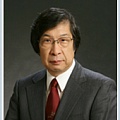As of 30.01.2020
Name of the project: New energy technologies and energy carriers
Strategy for Scientific and Technological Development Priority Level: б
Research directions: Research in the field of energy technologies and energy carriers
Project objective: Development of new methods of storage of hydrogen in gas hydrates and metal organic or polymer framework; creation of aluminum-air fuel cells and fuel cells based on new polymer electrolyte membranes.
|
Hosting organization
|
Field of studies
|
City
|
Invited researcher
|
Time span of the project
|
|---|---|---|---|---|
|
Multiphase precision technologies
Kutateladze Institute of Thermophysics of the Siberian Branch of RAS - (IT SB RAS) |
Energy and rational natural resources usage |
Novosibirsk |
Sazhin Sergei Stepanovich
United Kingdom |
2024-2028 |
|
Laboratory of Metal-hydride-based Power Engineering Technologies
Institute of Problems of Chemical Physics of the RAS |
Energy and rational natural resources usage |
Chernogolovka |
Lototskiy Mikhail Vladimirovich
, South Africa |
2022-2024 |
|
Laboratory of Solid-fuel Power Waste Recycling
South-Russian State Polytechnic University (NPI) named after M.I. Platov - (SURPU (NPI)) |
Energy and rational natural resources usage |
Novocherkassk |
Chaudhary Sandeep
India |
2022-2024 |




